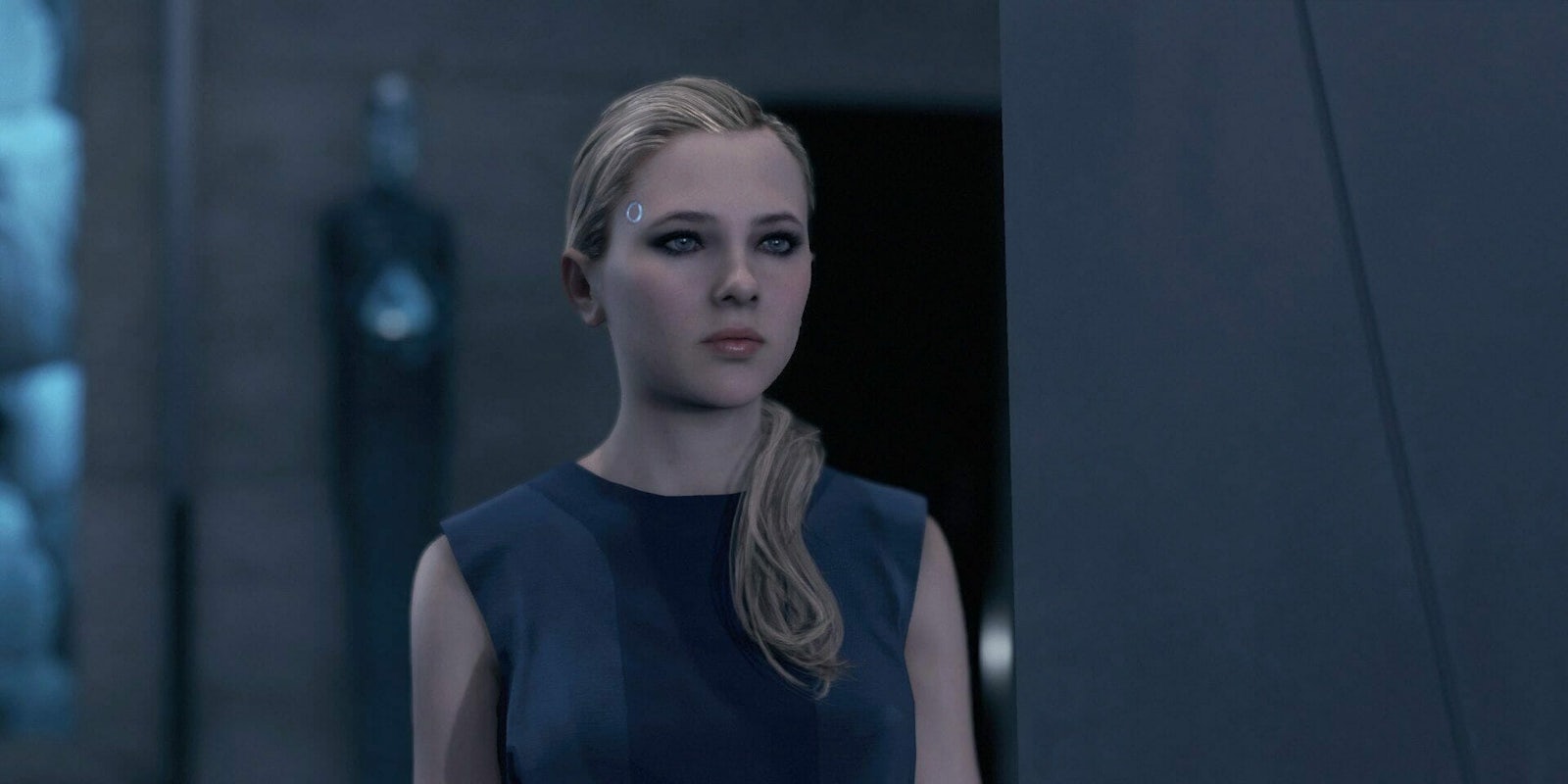This post includes a spoiler for the end of Detroit: Become Human.
Today in “you played yourself,” an anti-slavery video game will make sure that fans can keep a slave if they want.
Detroit: Become Human is the latest in a long line of sci-fi stories using androids as an allegory for slavery. It takes place in a Blade Runner-esque world with sentient robots, and like other games from writer/director David Cage, it received relatively good reviews while also being mocked for its heavy-handed storytelling.
One of the main androids in Detroit: Become Human is Chloe, who acts as a kind of in-game hostess. Within the Detroit universe, she’s the first model of android to pass the Turing test. Your own personal Chloe stays with you throughout the story, and at the end, you have the option to set her free. Since Detroit is all about how androids are enslaved and oppressed by humans, the ethical choice is obvious. But in response to demand from gamers, Detroit’s developer Quantic Dream will make sure you can still keep a slave and get that rush of moral superiority by setting her free.
https://twitter.com/GdeFondaumiere/status/1003643849263198208
The poll above came from Quantic Dream co-CEO Guillaume de Fondaumière, and it wasn’t just an idle question. During E3 this weekend, Quantic Dream announced that the game’s next patch would allow you to get a new Chloe model.
(Spoiler) A lot of players asked us to « bring back Chloe » after her release. We decided to follow the popular vote: @Detroit_PS4’s next patch will allow you to acquire a brand new model (but your original Chloe will still be free). pic.twitter.com/FBt59FrJC2
— Detroit: Become Human (@Detroit_Game) June 10, 2018
This doesn’t mean Detroit: Become Human is suddenly a dastardly pro-slavery game, any more than violent games cause real-life violence. (Just FYI, they don’t.) However, it does undermine Detroit’s image as a lofty example of allegorical storytelling. Gamers played through the whole thing, and their initial reaction was, “I want my beautiful blonde slave back.” And instead of hinting that these fans might have missed the point, Quantic Dream treated this like a customer service demand.
This situation feels reminiscent of the female lead in Blade Runner 2049. She was meant to illustrate the power imbalance and overall weirdness of buying a sexbot girlfriend, but most of her screentime involved being eye-candy or emotional support for the male hero. Both Blade Runner 2049 and Detroit: Become Human want to have their cake and eat it too.
Quantic Dream’s attitude to Chloe is an unintentionally cutting illustration of how these sentient robot stories can backfire. Within the game, Chloe follows a familiar trope: an automatically subservient assistant who looks like a young woman. We’re already starting to see this sexist idea unfold in the real world, with female-voiced bots like Echo, Alexa, and Siri.
By setting Chloe free, you tacitly admit that you’re part of the problem. You were a slave-owner who relied on Chloe’s labor and support. Your punishment is mild: a version of the game without Chloe’s presence, where you now have to play alone. But even this was too much for some gamers, and Quantic Dream resolved the problem by offering another commercially-available Chloe for players to exploit. So much for the android revolution.


